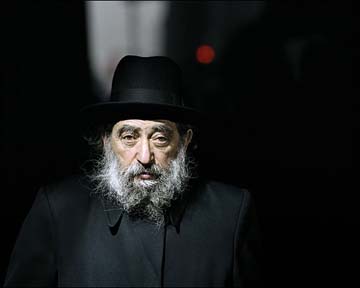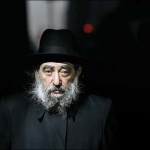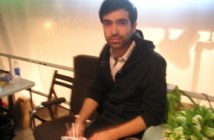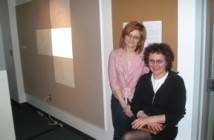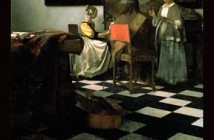This past month, the New York State Supreme Court dismissed a case contesting the ethics of street photography and whether it violates the rights of those individuals photographed. Erno Nussenzweig of Union City, New Jersey, and his lawyer, Lawrence Barth, had sought damages from photographer Philip-Lorca diCorcia and his gallery, Pace/MacGill for using his image without his permission and gaining from it financially.
The image of Nussenzweig was part of an exhibition entitled "Heads" and in subsequent publications as, Head No. 13, 2000 The image in question, shot by diCorcia, was part of a series began in 1999, where he had set up a system of triggered strobes and a long lens camera in Times Square. The result of such a set-up: photographs that fused street photography genre with cinematic lighting, shot from a distance to preserve the anonymity of the photographer.
Nussenzweig, an Orthodox Jew, claimed that the photographer using his image violated his First Amendment right to practice his religion on the grounds that his image constituted an engraven image that was exhibited and consumed commercially. However, Justice Judith J. Gische said that Nussenzweig's claim to privacy was not valid, finding that diCorcia created the photograph for artistic purposes.
The photograph, she added, represented the free and open flow of opinion and the image, for Nussenzweig, was the price of living in a society that holds those values. From this, therefore, we can conclude that artistic rights under the First Amendment trump freedom of religion, also protected under the First Amendment - at least when considering privacy laws within the civil courts of New York.
- Erno Nussenzweig here in Head No. 13, 2000 as photographed by Philip-Lorca diCorcia.
New York Times
Conscientious
GothamistSee More:
Philp-Lorca diCorcia - Heads
Pace/MacGill Gallery
Image courtesy of the artist and Pace/MacGill Gallery

